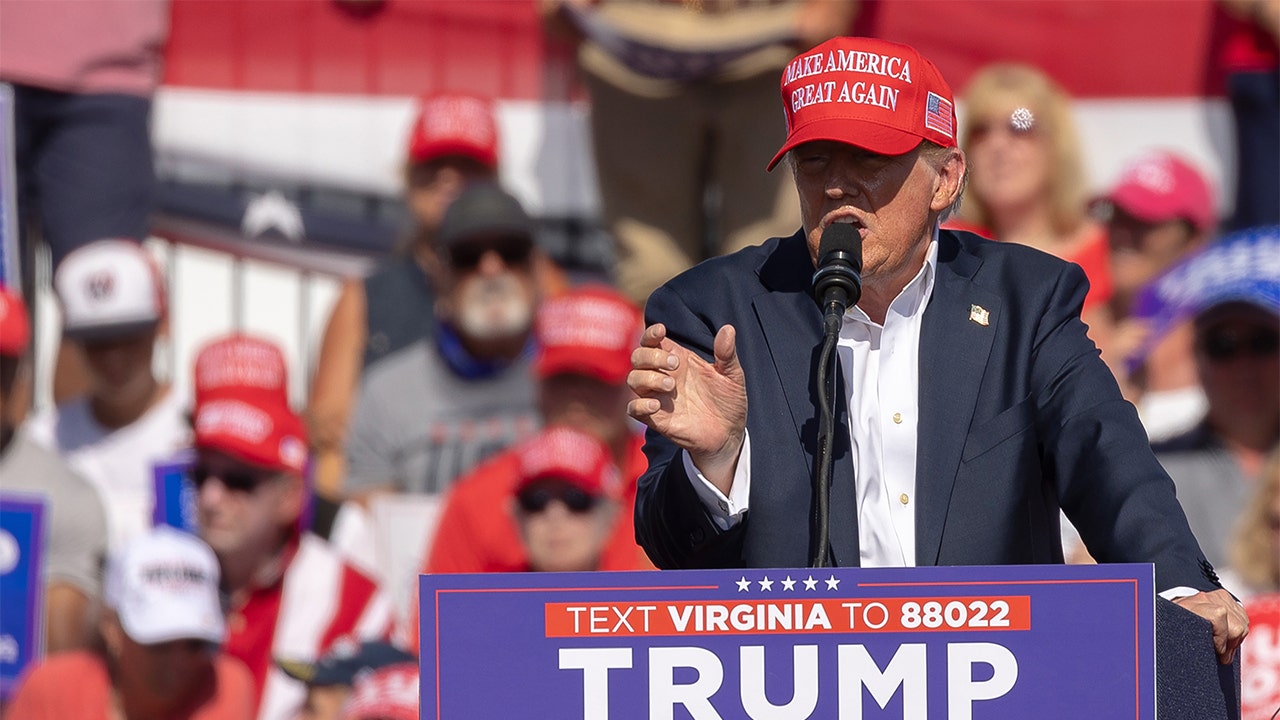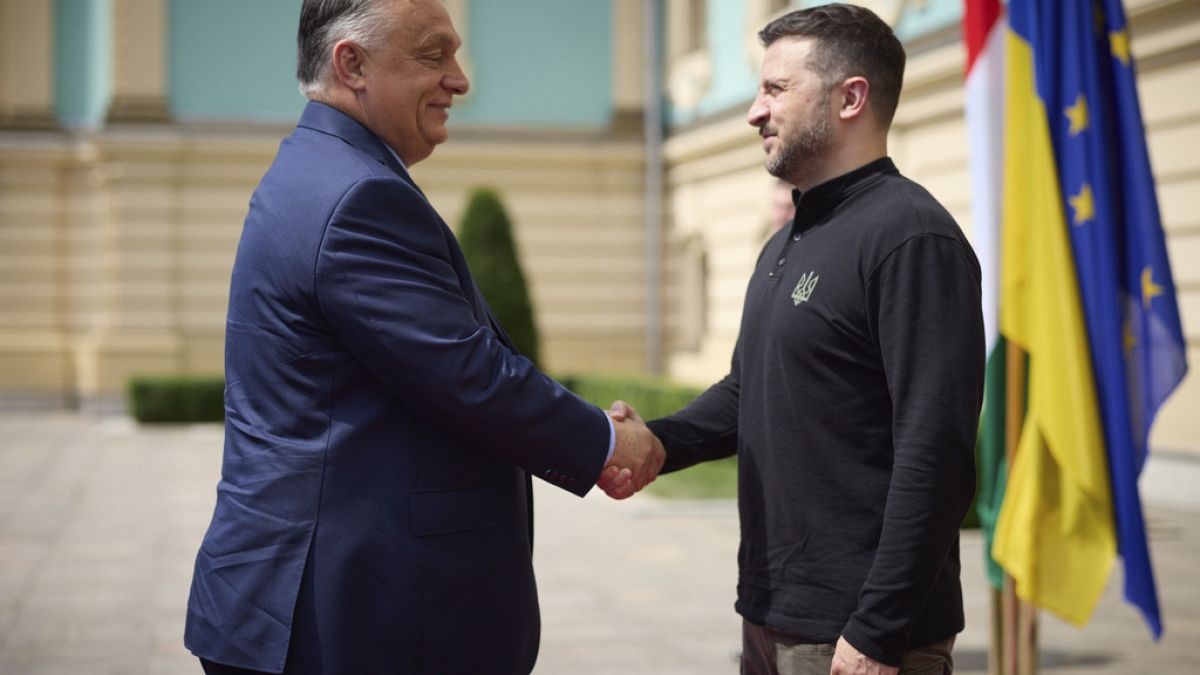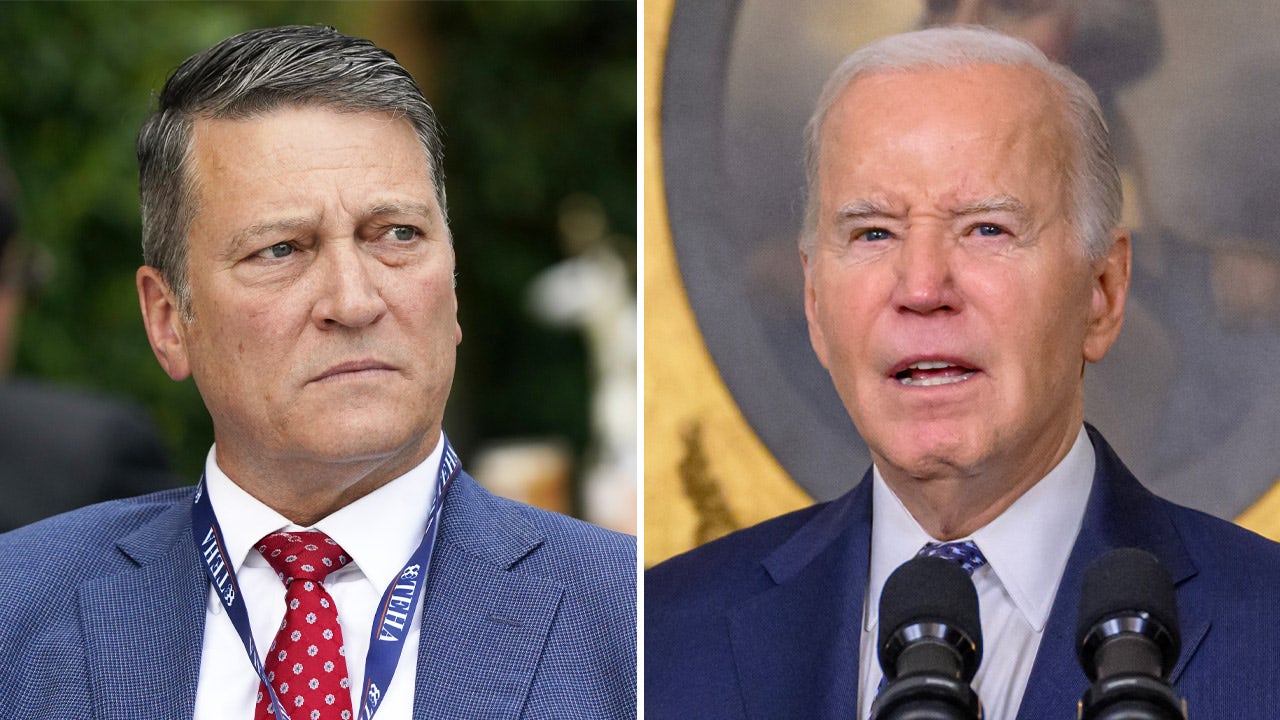Georgia
Congress is haggling over border security: Where does it stand? – Georgia Recorder

WASHINGTON — As Congress negotiates the White House’s $106 billion supplemental aid request for Israel, Ukraine and U.S. border security, fights over immigration policy have tied up the request.
The White House sent its proposal that includes nearly $14 billion in supplemental border security funding to Congress in late October, but it will likely look different after going through the House and Senate.
Congress only has a couple of weeks until recess to pass the supplemental measure. A small bipartisan group of six senators in the Senate is trying to put together a border security package.
Those six senators include Democrats Chris Murphy of Connecticut and Michael Bennet of Colorado, independent Kyrsten Sinema of Arizona and Republicans Thom Tillis of North Carolina, Lindsey Graham of South Carolina and James Lankford of Oklahoma.
However, Democrats object to some of those Republicans’ attempts to change asylum requirements and place more limits on humanitarian parole, as well as include a hard-line immigration bill passed in the House and advocated by Republicans.
Here’s a look at what’s in the White House request and where negotiations stand:
What’s in the White House’s proposal?
On Oct. 20, President Joe Biden released a request for added funding to focus on border enforcement, deterrence and diplomacy.
The plan would beef up hiring. It includes 1,000 additional U.S. Customs and Border Protection officers and resources for U.S. Homeland Security investigations; an additional 1,300 Border Patrol agents; 300 Border Patrol processing coordinators; an additional 1,600 asylum officers and support staff; 30 new U.S. Citizenship and Immigration Services officers to process work authorization documents; and 1,470 additional attorneys and support staff to match the 375 new immigration judge teams to help reduce the more than 2.5- million-case backlog in immigration courts.
The request also asks for additional funding for removal flights, additional beds at U.S. Immigration and Customs Enforcement facilities, and $1.4 billion in Shelter and Services Program grants to local governments and non-profits for temporary food, shelter, and other services for recently arrived migrants.
This would aid border towns, as well as several cities that have taken in a majority of migrants, such as Chicago, New York City and Washington, D.C., among others.
It would also give Southwest Border ports of entry the technology to enhance inspection capabilities, such as fentanyl detection.
Is a pathway for Dreamers part of this request?
No. A pathway to citizenship for the 800,000 people in the Deferred Action for Childhood Arrivals program, who were brought into the country without authorization when they were children, is not part of these border security talks.
What’s the House position?
House Speaker Mike Johnson of Louisiana wants to include provisions of H.R. 2 in the supplemental aid package, an immigration bill that House Republicans passed in May.
H.R. 2 is a symbolic border security package that mirrors Trump-era immigration policies. It would resume the hundreds of miles of construction of a border wall, strip funding from nonprofits that aid migrants, beef up staffing of Border Patrol agents and restrict the use of humanitarian parole programs that the Biden administration has used to allow nationals from Haiti, Cuba, Nicaragua, Afghanistan, Ukraine and Venezuela to work temporarily in the U.S.
It’s a nonstarter for Democrats in the Senate.
What are the disagreements in the Senate?
Senate Democrats don’t agree with including H.R. 2 in the supplemental package, and Senate Democrats also oppose changes that Republicans want to make to the asylum and humanitarian parole system. The Biden administration has relied heavily on the parole system.
The Biden administration already earlier this year placed new restrictions on asylum that resulted in criticism from Democrats and lawsuits from immigration advocacy groups.
Nearly a dozen Senate Democrats have already said they are concerned about the permanent changes that Senate Republicans now want to the asylum and parole system.
Similarly, a group of nearly 200 immigration rights organizations sent a letter to Congress, urging lawmakers to not make changes to asylum requirements or humanitarian parole and instead use funds “to improve asylum processing; reduce backlogs and work permit waiting times; resource states, localities and community shelter and support services; and fund legal counsel.”
What are changes to the parole system that Senate Republicans want?
Republicans want a limit on Biden’s authority to create humanitarian programs by prohibiting the U.S. Department of Homeland Security from using broad criteria to grant humanitarian parole, according to a one-page summary by GOP Sens. Lankford, Tom Cotton of Arkansas and Graham.
The GOP proposal would narrow the scope of the parole statue so that parole is only used in rare circumstances. It would also limit the time parole is granted to one year instead of two years.
What are the changes to asylum that Senate Republicans want?
Senate Republicans want to raise the bar for initial credible fear of persecution screenings that migrants present to asylum officers who decide whether a person can reside in the U.S. while their case is being presented before an immigration judge.
Now, to claim asylum under the fear of persecution, migrants must show there is a “significant possibility” they will face persecution. Republicans want to change that language and require asylum seekers to demonstrate that “more likely than not” they would face persecution if they remain in their home country.
Republicans have argued this would “weed out” meritless claims for asylum, but Democrats have contended it would deny lifesaving protection for vulnerable people.
Where are talks now?
There is no agreement in the Senate or House and negotiations continue.
Senate Majority Leader Chuck Schumer of New York has made it clear to Senate Minority Leader Mitch McConnell of Kentucky and Johnson that any border security agreement has to be bipartisan. Schumer has raised concerns about Johnson wanting to include H.R. 2 provisions in the Senate’s supplemental border security package.
“Democrats are willing to work with Republicans on commonsense, realistic border security, but we can’t have the hard right essentially say it’s H.R. 2 or nothing,” Schumer said in a floor speech. “If Speaker Johnson, or for that matter the negotiators, feel they have to listen to what Speaker Johnson can pass just amongst his caucus, we’ll never get anything done.”
Schumer said he plans to hold a vote on the supplemental package as soon as the week of Dec. 4.
GET THE MORNING HEADLINES DELIVERED TO YOUR INBOX

Georgia
Fictional But Faithful: Writing Georgia O’Keeffe as an Amateur Sleuth

The burden, and I should say the responsibility of writing about a real historical figure, is formidable. Do you depict that person warts and all? How indeed do you reveal those warts without violating your character, but rather make the flaws an interesting part of their personality? This is a challenge I had to meet head on when I set out to write my Georgia O’Keeffe mysteries. I knew about her as a painter as the rest of the world does. But what in her character or her work as a painter would even suggest she might make a good amateur sleuth?
Actually, my research began with an art exhibition at the Peabody Essex Museum in Salem, Massachusetts that focused not on her paintings but her “things”—her clothing mostly. She was an expert seamstress and sewed many of her own clothes. I fell in love with one cream colored dress that had miniscule pleats that made up the bodice. I put that dress in the first book I wrote featuring Georgia, Light On Bone. One thinks of O’Keeffe’s paintings as great swathes of color, broad brush strokes but the stitching on this dress is just the opposite of broad brushstrokes. It is painstakingly delicate. The detailing is exquisite, the stitches almost microscopic. In short, she was alert to the infinitesimal that others might miss. For her, the Sherlock Holmes magnifying glass would be redundant.
In addition to the clothes she made, she had a fairly large collection of Japanese kimonos. These kimonos in a sense spoke largely about her aesthetic which was sleek and simple. But there were also, jeans, sneakers, and a well-worn pair of brown leather lace up boots that she used for tromping around in the desert.
Issey Miyake, the famous Japanese clothing designer, in 1983 declared the painter his muse. “Georgia O’Keeffe. For the first time, I’m designing clothes with one person in mind. And I’m planning to send them to her when they’re ready.”
But perhaps the greatest example of her refined sensibilities is her house in Abiquiu, New Mexico. Her dining table was a plywood plank on sawhorses. On a small table by an easy chair there was a dish of rattles she collected from rattlesnakes she had encountered on her walks out in the desert, and killed if they threatened her. There were also, the bones that she searched for that became a central subject of so many of her paintings. In short, no clutter, no tchotchkes, nothing distracting. She could keep her focus on form, pattern and construction. How things fit together.
As I have said countless times to people, when you come back from seeing the Abiquiu house, you simply want to throw out everything in your own house. But then you realize it wouldn’t work, for it is the New Mexico light that brings it all together. She decorated the house in an active partnership with the desert light.
But these are all the material things that spoke so directly to her aesthetic. What about her thinking? Her beliefs beyond the material? How did she think and handle her complex relationship with her husband Alfred Stieglitz who was serially unfaithful to her? Perhaps the one act she never forgave was when he forced her to have an abortion.
Although I never found anything in her writing that directly mentioned the abortion, I did find this letter to Stieglitz after one of her early trips to the southwest.
There is much life in me — when it was always checked in moving toward you — I realized it would die if it could not move toward something … I chose coming away because here at least I feel good — and it makes me feel I am growing very tall and straight inside — and very still — Maybe you will not love me for it — but for me it seems to be the best thing I can do for you — I hope this letter carries no hurt to you — It is the last thing I want to do in the world.
So, it was by reading her letters to Stieglitz and those she wrote to Anita Pollitzer, another artist and friend, who introduced her to Stieglitz that I discovered her voice, and some of her deepest passions. It is a quiet yet dazzling voice. It is a voice that I felt was the essence of Georgia O’Keeffe.
I have written many novels that feature historical figures. Although these are fictional stories, I always want to stay true to the character of that person. I think of myself as an explorer of feelings, buried emotions and not simply events in their lives, but how these events might impact their lives and how they would think about them. And this is what fed into Georgia’s eccentric skills as an amateur detective. There is an array of feelings and emotions to be explored in the life of O’Keeffe. Perhaps first and foremost those feelings for the desert and her regrets of never having a child. But there are also her political beliefs and the growing threat of the second world war.
Perhaps the best part of writing about an historical figure is for me the ‘historical’ part. My book Light on Bone, and the second one, Mortal Radiance, are both set in the 1930s. The build up toward World War 2 is beginning. Therefore, I find myself having to take meticulous care on a range on seemingly obscure questions as I explore that era and put facts in the book. What year were the ice cream treats Eskimo pies invented? Did they have electro cardiograms in the 1930’s? When was penicillin developed? The OSS morphed into the CIA in the 1940s. How did that happen? When and where in our country did the German American Bund emerge. What were the ties between the Duke and the Duchess of Windsor and Nazis?
But perhaps one of the most fascinating things I had to explore was a perceptual phenomenon that Georgia O’Keeffe had known as Synesthesia. Synesthesia is a perceptual experience in which stimulation in one sensory pathway triggers another experience in a second pathway. This is a perfect talent for a visionary detective to possess. And it’s not fiction! Georgia was a great listener to classical music. So, I might think when I see one of her paintings what music might she have been listening to that inspired the painting of The Grey Hills—was it Pablo Casals? Or perhaps something more tumultuous, Mahler Symphony number 9? For me Georgia O’Keeffe is an ultimate and compelling enigma and that was why I chose to write about her. And in doing so I am determined to remain faithful to the fiction of this character—Georgia Totto O’Keeffe.
***
Georgia
Trump immunity ruling could shatter Georgia RICO case – Washington Examiner
The Supreme Court‘s ruling this week that presidents have some immunity from criminal prosecution came in response to arguments Donald Trump made about his case in Washington, D.C., but the decision could also dramatically affect the former president’s case in Georgia.
The high court ruled that a lower court judge will have to sift through Trump’s federal election interference indictment to determine which acts are official and private. Judge Tanya Chutkan will then have to decide which of Trump’s official acts are absolutely immune from prosecution and which are only presumptively immune. A judge in Georgia may eventually have to do the same.
It is unclear how this tedious process, which legal experts say could evolve into a mini-trial of its own over the next few months, will affect Trump’s four charges in Washington, but the Supreme Court provided guidelines that suggest special counsel Jack Smith’s case will be significantly weaker once immunized acts are excised from it.
Of Trump’s four criminal cases, the one in Georgia is the most similar to the one in Washington. Fulton County District Attorney Fani Willis alleged Trump and 18 co-defendants violated the state’s racketeering laws by attempting to overturn the 2020 election illegally in a battleground state that Trump narrowly lost.
Willis’s sweeping indictment featured dozens of acts that, when looked at as a whole, result in an alleged violation of Georgia’s Racketeer Influenced and Corrupt Organizations Act. The acts included Trump having phone calls or meetings with state lawmakers, posting false statements on his X account about the election while he was still president, and communicating with officials in his Department of Justice.
The Supreme Court outlined in its guidance that a president’s communication with the DOJ is a core function of the office and must always be immune from prosecution. Other acts, such as a president’s communication with state officials or his public statements, could be immune from prosecution, but a lower court judge must decide that under the Supreme Court’s new framework.
As with Smith’s charges, the Supreme Court’s ruling threatens to imperil Willis’s indictment depending on what the judge in Georgia determines are official acts.
Unlike in Washington, where prosecutors and Chutkan can quickly forge ahead to address immunity in the case, the Georgia case has another layer of problems.
Judge Scott McAfee, the Fulton County Superior Court judge presiding over Trump’s case, ruled earlier this year that Willis was not disqualified from the case after Trump and his co-defendants argued a relationship she had with a prosecutor created an irreversible conflict of interest.
Trump appealed McAfee’s decision, and now the Georgia Court of Appeals has taken the judge’s decision under review.
Trump also requested several months ago that his case in Georgia be dismissed because of presidential immunity, and McAfee said he would wait until the Supreme Court issued its decision before he addressed Trump’s request.
Allegra Lawrence-Hardy, a Georgia-based lawyer who specializes in elections, noted that the Georgia appellate court likely will not address Trump’s appeal about disqualification until the first quarter of 2025, meaning McAfee currently does not have jurisdiction over the case to make decisions about immunity.
“It is very unlikely that the trial court will even have jurisdiction to rule on this motion or to have its own mini-trial prior to the election,” Lawrence-Hardy said Monday on a call with reporters.
She observed, however, that Trump’s immunity argument to the Supreme Court “very closely tracks the briefing in this case,” suggesting the case will undergo the same mini-trial exercise as the one that is anticipated in Washington.
It is also unclear how the Supreme Court’s ruling will affect Trump’s co-defendants. It could have zero impact on some, but others, such as former DOJ official Jeffrey Clark and former chief of staff Mark Meadows, may see some relief because their actions involving Trump could be protected by presidential immunity now.
Anthony Michael Kreis, a Georgia State University law professor, said in a post on X that it is unlikely that Clark would be able to face charges in the same case as Trump because evidence against Clark that involves Trump is now protected by immunity and cannot be included in Trump’s case.
Kreis said the court’s decision complicates trying Meadows but does not rule it out.
“As a consequence, it’s rather unlikely that Jeff Clark will ever be tried alongside Donald Trump at the same time,” Kreis wrote. “The Meadows issue will be considerably more complex.”
CLICK HERE TO READ MORE FROM THE WASHINGTON EXAMINER
The cases in Washington and in Georgia appear poised to stretch for several months or longer, but if Trump, the presumptive Republican presidential nominee, were to win the election, he could attempt to use his pardon power to toss his federal case out.
While the Georgia case is stalled indefinitely and may be drastically diminished once immunity questions are sorted out, Trump would be unable to pardon himself there.
Georgia
Nick Ammirati leaving Kentucky for Georgia; Nolan McCarthy enters transfer portal

Just a couple of weeks after the Kentucky Wildcats’ miraculous baseball season ended in their first-ever College World Series berth, assistant coach Nick Ammirati is leaving to join the Georgia Bulldogs, the school announced Tuesday.
Ammirati came to Lexington in 2021 after leaving Southern Mississippi, and his contract expired last night at midnight. Instead of a renegotiation, he leaves for Georgia to join former Wildcat coach Will Coggin, who was an assistant under Nick Mingione from 2020-2023.
Ammirati’s departure will sting a tad bit for Kentucky, as he was the lead recruiter for tons of players, both incoming freshmen and guys coming in through the transfer portal. The program is in a much better spot now than when Ammirati first got here, so finding a replacement shouldn’t be as challenging as one would initially think.
Mingione moved Ammirati to the dugout more than two years ago, when Ammirati originally coached third base, to be with the players in the dugout, leaving Coach Mingione to coach third base. Mingione made the switch and he credits that move being a pivotal point in turning the program around.
We could be seeing our first repercussion of this loss, as standout outfielder Nolan McCarthy has entered the transfer portal, according to Derek Terry.
It’s my understanding that McCarthy had a close relationship with Nick Ammirati, who left Kentucky for Georgia yesterday. Safe to say the Bulldogs are a team to watch in that recruitment.
— Derek Terry (@DerekSTerry) July 2, 2024
This past season McCarthy was Kentucky’s full-time starting centerfielder while batting .288 with eight home runs and 41 RBI. He was set to be a redshirt senior for the 2025 season.
McCarthy will forever live in Kentucky history after his memorable play vs. Oregon State that sent the Bat Cats to the College World Series. In Game 2 of the Lexington Super Regional against the Beavers, McCarthy scored from second base on a dropped third strike to give the Cats a 3-2 lead, which would prove to be the final score.
Exceptional baserunning by Nolan McCarthy who scores all the way from 2nd on this wild pitch to give Kentucky a 3-2 lead! How are you not covering the plate?! Pitcher was walking the entire time. Unbelievable. pic.twitter.com/dpudHSAuTY
— Peter Flaherty III (@PeterGFlaherty) June 10, 2024
Follow our Twitter and Facebook pages for more UK news and views. Go Cats!
-

 News1 week ago
News1 week agoA Florida family is suing NASA after a piece of space debris crashed through their home
-

 Politics1 week ago
Politics1 week agoBiden official says past social media posts don’t reflect ‘current views,’ vows to support admin ‘agenda’
-

 World1 week ago
World1 week agoIsrael accepts bilateral meeting with EU, but with conditions
-

 World1 week ago
World1 week agoNetanyahu says war will continue even if ceasefire deal agreed with Hamas
-

 Politics1 week ago
Politics1 week agoDeSantis signs bill allowing residents to kill bears, vetoes bill that fines slow left lane drivers
-

 News1 week ago
News1 week agoWoman accused of trying to drown Muslim child in Texas in possible hate crime
-

 Movie Reviews1 week ago
Movie Reviews1 week agoI Am: Celine Dion Movie Review: A gut wrenching account of Celine Dion’s quest to find her voice
-

 World1 week ago
World1 week agoOver 10,000 Poles participate in Pride parade in Warsaw



















